Flying solo: women’s travel takes off
Women have long been the travel agents for their families. Now they’re striking out on their own.
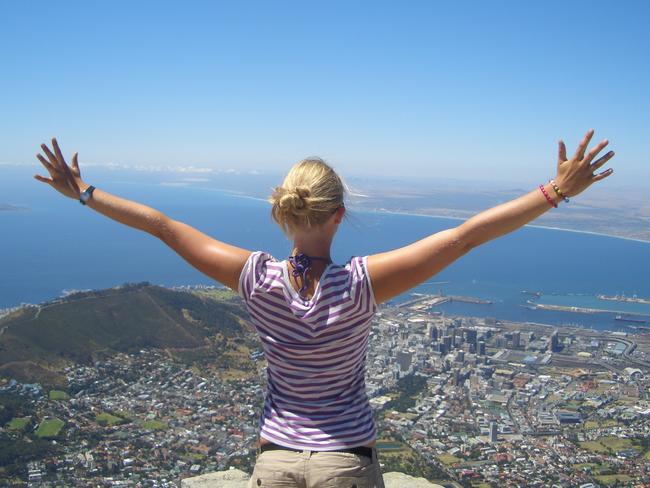
Half a century ago, in 1966, The Australian Women’s Weekly took the prescient move of putting together Euro-centric “world discovery” tours for its readers in conjunction with a leading agency of the day, World Travel Headquarters. These holidays were aboard cruise ships and coaches, considered impossibly exotic at the time, and the first sold out in four weeks, the next in a matter of days. “Eighteen countries in 18 weeks” was the lure. The voracious consumers of the holy trinity of magazine topics — royalty, recipes and romance — took charge and set off, with or without accompanied baggage (husbands), and many developed a lust for travel that would be passed down through generations of daughters.
Women with male partners and families have long been travel organisers, typically devoting more time to seeking out deals, researching destinations and ensuring hotels and cruise lines have the right facilities and programs for children. In less enlightened times, it must have seemed almost an extension of domestic duties.
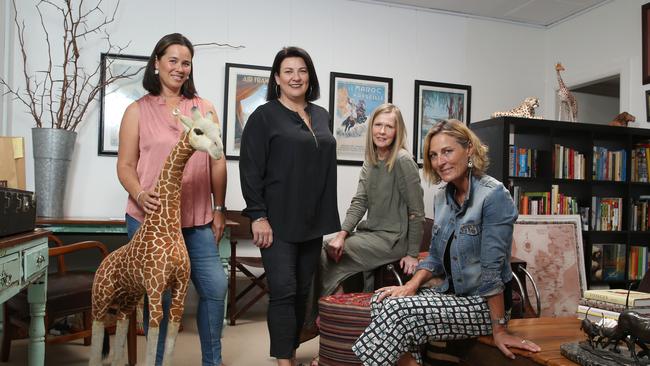
But now, when those mother-hen days of wrangling families are over, a different type of maiden voyager emerges. She’s travel savvy and well informed and ready for a more spirited style of escape. Statistics show, too, she’s likely to set out solo or in the company of like-minded female friends. If there’s a male in her life, he may be off bonding with his buddies, playing golf or validating his masculinity by rafting wild rivers. Such separation has led to a cargo of frequently naff neologisms: babymoons for couples enjoying a last gasp of freedom before the bub arrives, mancations for all-male trips, and indulgent mumcations for exhausted mothers.
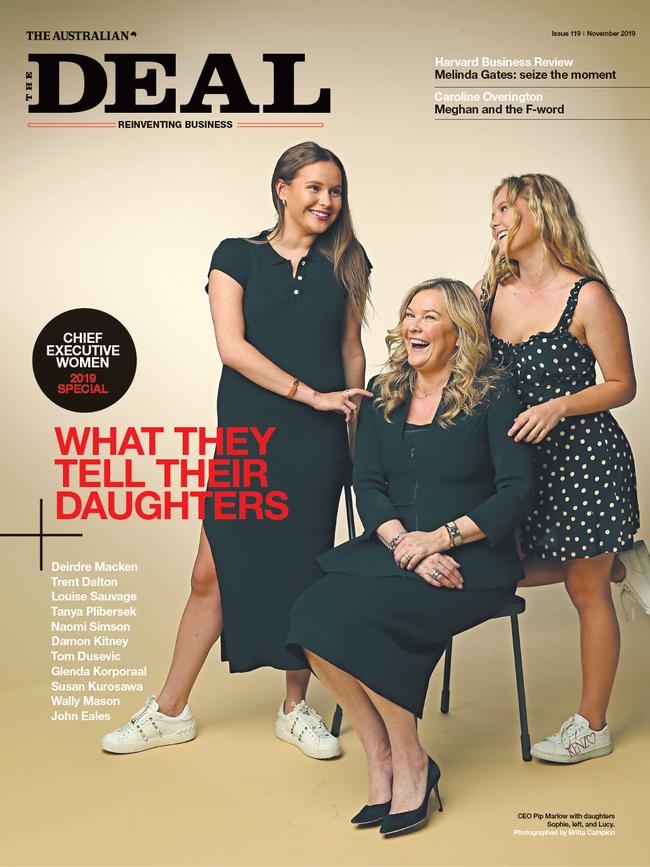
Altered parameters
Underlining changes in the way women travel are the altered parameters of relationships. Women usually marry later than their mothers did, may remain single, be in a same-sex partnership or get divorced while still relatively young. Travel has never been more affordable or accessible, and Australia’s annual leave provisions are more generous than those of most nations. We are also fitter than earlier generations, likely to be better educated and to have more disposable income. Importantly, the idea of a male escort to lead the way or pay for a holiday seems ludicrous.
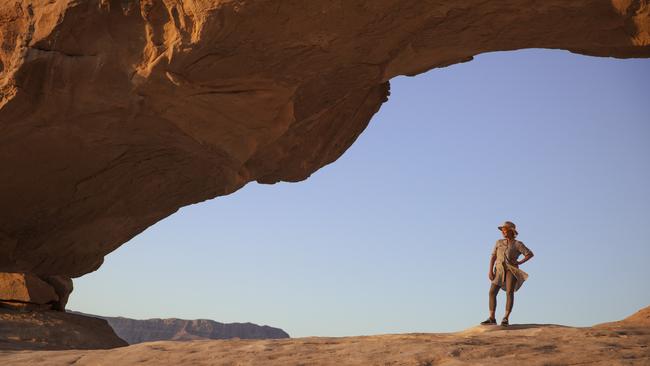
So, with the world as our oyster, how and where do women go? Adventure travel is the biggest trend, with many females determined to confound gender stereotypes by undertaking difficult physical challenges. They could go alone, with an operator-organised group or in a hook-up with friends. More women than men also volunteer through NGOs and charities, with a marked trend to embrace causes that deal with domestic abuse or the ostracisation of widows and rape victims in many cultures. Habitat for Humanity Australia, for example, will mark International Women’s Day on March 8 next year with its Impact Build project in Nepal from March 7-14. Volunteers will participate with the female residents of the town of Nepalgunj and local construction workers in phase one of building 10 homes in a safe community for disadvantaged women who have been divorced, separated or abandoned by their in-laws as symbols of ill omen after the deaths of their husbands.
More extreme
British-based Charity Challenge is celebrating its 20th anniversary this year and its director, Simon Albert, says women are “out-toughing men” to raise funds on expeditions that include mountain climbing, cycling and trekking. “The split between men and women [on our challenges] has always averaged around 60 per cent women to 40 per cent men but the latter were more likely to book extreme-graded options,” Albert says. “In the past five years, the balance has shifted significantly, and while women used to account for 45 per cent of our [most extreme] challenges, that has risen to about 65 per cent.” The challenges graded as tough or extreme include summiting Mount Kilimanjaro in Tanzania, reaching Everest Base Camp in Nepal and lava trekking in Iceland.
Australian operator Intrepid Travel runs Women’s Expeditions that are off-limits to mixed gender groups. The range began with Morocco, Iran and Jordan and has expanded to seven destinations. The Iran itinerary was launched with two departures and was so popular that within eight months, an extra 11 tours were added. Intrepid’s Tara Harrison says 62 per cent of travellers on its mixed-gender “active” and expedition trips are female.
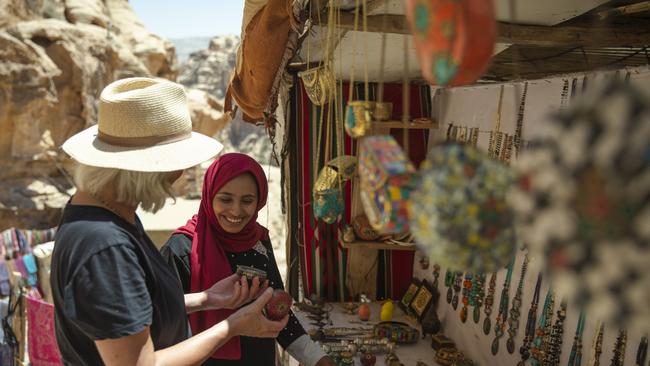
Other escorted small-group adventure options include Secret Women’s Series, a portfolio by Sarah Hoyland under the umbrella of Sydney-based Classic Safari Company. The implicit mantra is for women, by women and with women. Featured itineraries include climbing Mt Kilimanjaro in August 2020, with downtime in Zanzibar. Classic Safari Company founder Julie McIntosh adds that nine out of 10 inquiries for all solo or small-group departures are from women and the average age is 50-plus.
Not so earnest
While the trend is towards “authentic cultural experiences”, sometimes including festivals and rare opportunities for community involvement in off-the-radar destinations such as Bhutan, Mongolia and Uganda, not all women seek earnest escapism.
Pampering trips to Bali in all-girl groups are widely marketed with messages such as “give me a break”. Exotic shopping trips sell like home-baked scones at fetes, whether Secret Souks tours to Tunisia with Australian fouta towel importer Jane Nafti, or Carol Prior’s luxurious By Prior Arrangement trips to Morocco.
Rather than sniffing at any suggestion of gender bias marketing, devotees of such all-female travel praise the benefit of holidaying with those of like-minded interests and the implicit permission to take as many spa treatments as the day will allow, unwind over yoga and make new friends.
Janet, a recently widowed neighbour of mine in her late-50s, tells me she just wants to travel with solo women of her own age and not be the odd one out among couples. Her daughter, Caroline, says booking a “spacation” with her girlfriends is simply about leaving the kids with her husband and having a total reprieve from reality.

To join the conversation, please log in. Don't have an account? Register
Join the conversation, you are commenting as Logout